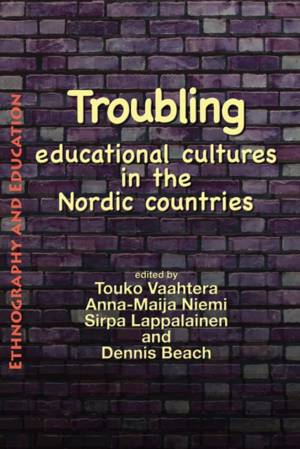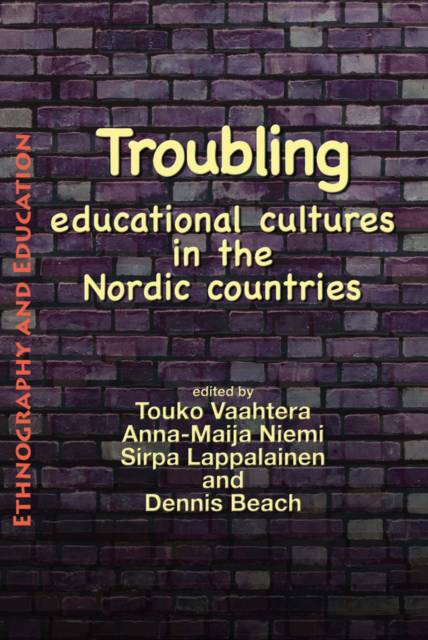
- Afhalen na 1 uur in een winkel met voorraad
- Gratis thuislevering in België vanaf € 30
- Ruim aanbod met 7 miljoen producten
- Afhalen na 1 uur in een winkel met voorraad
- Gratis thuislevering in België vanaf € 30
- Ruim aanbod met 7 miljoen producten
Troubling educational cultures in the Nordic countries
Omschrijving
School is crucial in children's and young people's subject formation. It frames how they understand themselves as learners and more broadly as human beings. Moreover school also has very material effects on future life prospects when guiding students to follow particular paths and form understandings of the world and their place in it.
The Nordic countries have had a reputation for pursuing fair and equal education, but they have a long way to go to reach a state where all students can equally reach their full potential. Young people of working class, ethnic minority or special education background still find themselves channelled to culturally less-valued educational routes more often than others, and schools still reinforce heteronormative, ableist and colonialist understandings of the world.
This book analyses, challenges, and troubles contemporary educational cultures in Nordic countries and the complex and distinctive meanings given to them.
The authors of this book have focused on cultural processes connected to these issues by examining blind spots in education systems that are considered the most equal in the world. They describe and analyse how young people who do not fulfil cultural expectations are still relatively easily pushed into the margins and highlight how pedagogical practices put in place to promote equality often instead establish the privileged position of the hegemonic majority, or even create new forms of marginalisation. In doing this the contributors have also pointed out the potential for resistance that exists for young people and educators within these systems.
Specificaties
Betrokkenen
- Uitgeverij:
Inhoud
- Aantal bladzijden:
- 202
- Taal:
- Engels
- Reeks:
Eigenschappen
- Productcode (EAN):
- 9781872767598
- Verschijningsdatum:
- 15/11/2017
- Uitvoering:
- Paperback
- Formaat:
- Trade paperback (VS)
- Afmetingen:
- 152 mm x 229 mm
- Gewicht:
- 276 g

Alleen bij Standaard Boekhandel
Beoordelingen
We publiceren alleen reviews die voldoen aan de voorwaarden voor reviews. Bekijk onze voorwaarden voor reviews.







